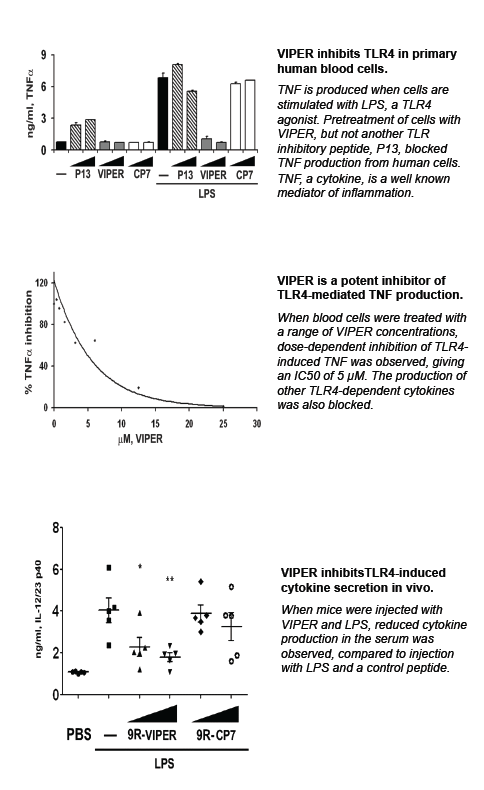
Cat. #154737
Anti-CD49E (Integrin Alpha 5) [SAM1]
Cat. #: 154737
Sub-type: Primary antibody
Unit size: 100 ug
Target: CD49E
Class: Monoclonal
Application: FACS ; IHC ; IP
Reactivity: Human
Host: Mouse
£300.00
This fee is applicable only for non-profit organisations. If you are a for-profit organisation or a researcher working on commercially-sponsored academic research, you will need to contact our licensing team for a commercial use license.
Contributor
Inventor: Arnoud Sonnenberg
Institute: Netherlands Cancer Institute
Tool Details
*FOR RESEARCH USE ONLY (for other uses, please contact the licensing team)
- Name: Anti-CD49E (Integrin Alpha 5) [SAM1]
- Alternate name: ITGA5
- Research fields: Cell biology;Cell signaling and signal transduction
- Tool sub type: Primary antibody
- Class: Monoclonal
- Conjugation: Unconjugated
- Molecular weight: 135 kDa
- Strain: Balb/c
- Reactivity: Human
- Host: Mouse
- Application: FACS ; IHC ; IP
- Description: The ITGA5 gene encodes the integrin alpha 5 chain. Alpha chain 5 undergoes post-translational cleavage in the extracellular domain to yield disulfide-linked light and heavy chains that join with beta 1 to form a fibronectin receptor. In addition to adhesion, integrins are known to participate in cell-surface mediated signalling
- Immunogen: U 937 cells
- Isotype: IgG2b
- Myeloma used: Sp2/0-Ag14
Target Details
- Target: CD49E
- Molecular weight: 135 kDa
- Target background: The ITGA5 gene encodes the integrin alpha 5 chain. Alpha chain 5 undergoes post-translational cleavage in the extracellular domain to yield disulfide-linked light and heavy chains that join with beta 1 to form a fibronectin receptor. In addition to adhesion, integrins are known to participate in cell-surface mediated signalling
Applications
- Application: FACS ; IHC ; IP
Handling
- Format: Liquid
- Concentration: 0.9-1.1 mg/ml
- Unit size: 100 ug
- Storage buffer: PBS with 0.02% azide
- Storage conditions: -15° C to -25° C
- Shipping conditions: Shipping at 4° C
References
- Sopp et al. 1997. Vet Immunol Immunopathol. 56(1-2):11-25. PMID: 9220577.
- te Velde et al. 1988. J Immunol. 140(5):1548-54. PMID: 3279117.


